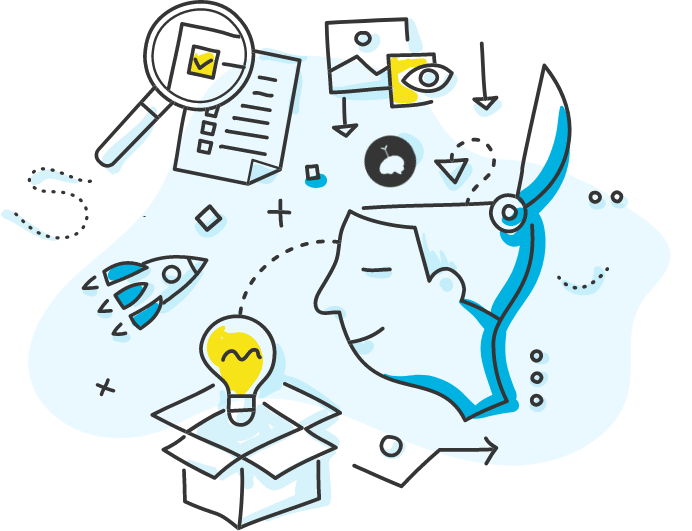Estimated Reading Time: 3 minutes, 6s.

If you ask many people where they get the most work done, hardly anyone will tell you “the office.” People will rhyme off all sorts of places first: the coffee shop down the street; their home office (but only after the kids have gone to bed); or an airplane, when they don’t have access to the internet.
I’ve noticed this in my own work. For example:
- I can’t read research papers at my desk, in front of my computer. I’m distracted too easily. I read these papers at a much faster clip sitting at the kitchen table, or at a coffee shop.
- I write significantly more words per hour at my favorite coffee shop (around 40% more).
- I finish simple and quick tasks quickest on an airplane, or when traveling. Other places, it’s not even close.
Why is this the case? Why are many people so unproductive at the office?
I’d argue it’s because of all the mental noise we endure. At the office, we’re surrounded by countless “triggers” which initiate unproductive thoughts and habits, derail our productivity, and remind us of all the work we have to get done.
These triggers come in the form of interactions with colleagues and post-it note reminders of all we have on our plate. When we hear our coworkers working alongside us, we’re reminded that we may be interrupted throughout the day, and that our attention is not completely our own. Our computers come with innumerable triggers for unproductive habits: links to news websites we’ve bookmarked; email alerts that pop into the corner of our screen. All of this environmental noise leads to more mental noise. This affects how much clarity we feel as we work, and ultimately how much we get done.
The environments where we get the most done are usually much calmer and quieter. That’s because the coffee shops, airport lounges, or home offices, often lack the triggers mentioned above.
Luckily, once we’re aware of the spaces in which we’re most productive, we can use that knowledge to our benefit.
Here are a few simple suggestions that I have found work in practice:
- Clean up your office. That way you’ll be presented with fewer distracting cues over the course of the day. Just as you feel calmer coming home to a clean house, you’ll have greater mental clarity in a clean office.
- Make a list of the places you’ve worked over a given month, and rank them according to how productive you were in those environments. When you have an important project that requires you to hunker down, work on it in the place you determined to be your least distracting. Complete tasks that don’t require as much focus in places where you’re less productive, like the office.
- Choose a specific place to do a recurring task that requires a lot of focus. I’ve been working on a new proposal these past few months, and have written 80% of it while sitting at the same corner table at a coffee shop I frequent. I’ve trained my brain to recognize that every time I sit at that spot, it’s time to chip away on that specific project.
- Give different “jobs” to different devices. I recently bought an iPad, which I use as my “distraction machine” (which I wrote about last month). I no longer have social media apps or email on my main work computer or smartphone—instead, I restrict myself to doing those tasks only on the iPad. This has allowed me to work deeper and longer when I’m at my computer—and think more clearly as I go about that work.
Because our brain is so influenced by the cues around us, it’s worth modifying our environment to fit our goals. These tactics should help!




